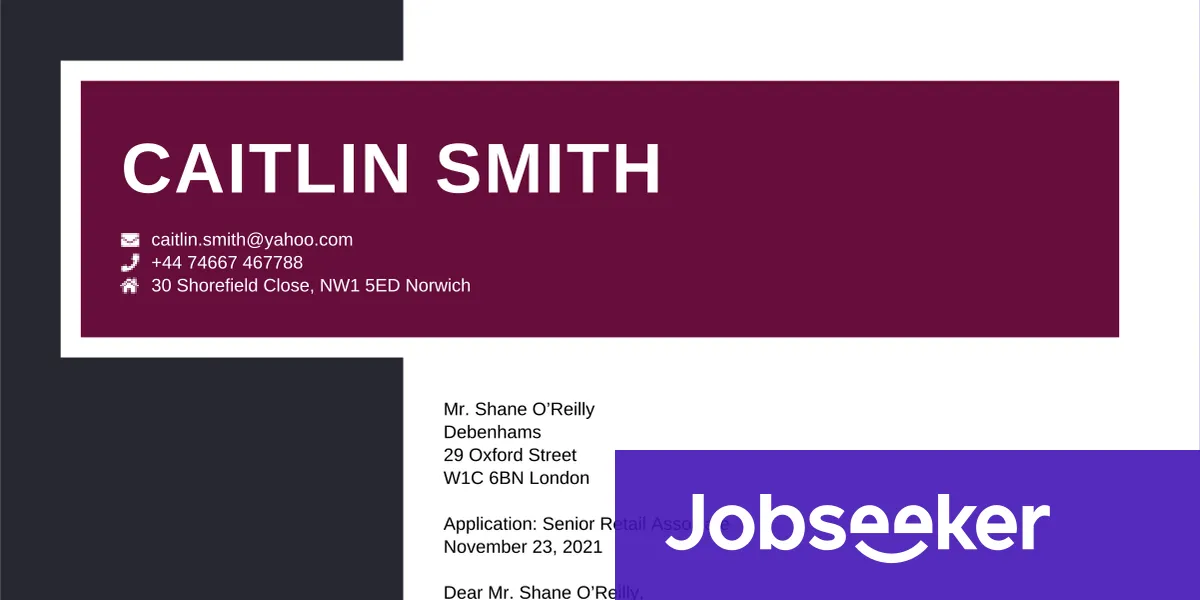Why a Retail Cover Letter Matters
In the competitive world of retail, a well-crafted cover letter can be the key that unlocks your dream job. Often overlooked, this document serves as your first impression, providing an opportunity to showcase your personality, skills, and passion for the industry. Unlike a resume, a cover letter allows you to tell a story, connecting your experiences to the specific requirements of the role and the values of the company. It is your chance to go beyond a list of qualifications and demonstrate why you are the perfect fit for the position. Many candidates do not even submit a cover letter, so by including one, you set yourself apart. Consider it your personal introduction, a chance to make a memorable first impression and encourage the hiring manager to delve deeper into your qualifications.
Highlighting Your Skills and Experience
Your cover letter should be a targeted presentation of your skills and experience, directly relating to the job description. Begin by identifying the key requirements mentioned in the job posting. Then, reflect on your past roles and identify instances where you successfully demonstrated these skills. Quantify your achievements whenever possible. Instead of simply stating ‘Managed inventory,’ describe how you ‘Reduced inventory discrepancies by 15% through the implementation of new tracking procedures.’ This level of detail provides concrete evidence of your capabilities. Remember, the goal is to show the hiring manager that you have not only the skills, but the proven track record of using those skills effectively. Each bullet point should illustrate a core competency, linking your experience to the needs of the role.
Showcasing Relevant Retail Skills
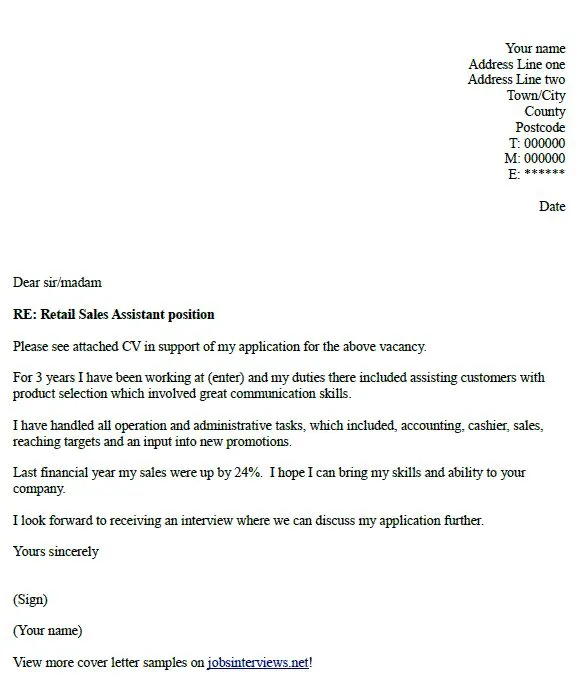
Retail positions demand a unique blend of skills. Your cover letter should highlight abilities essential for success in the industry. It’s not enough to simply list these skills; you must demonstrate how you’ve applied them in previous roles. For instance, if the job description emphasizes customer service, provide an example of a time you went above and beyond to resolve a customer issue or create a positive shopping experience. Similarly, if the role requires sales experience, share a time you met or exceeded sales targets. Ensure your skills and achievements are directly related to the job posting.
Customer Service Excellence
Customer service is the cornerstone of retail success. Showcase your ability to create positive customer experiences. Focus on instances where you resolved complaints, provided exceptional service, or built strong customer relationships. Use specific examples to illustrate your approach. Did you receive positive feedback from customers? Did you go the extra mile to assist someone? Describe these scenarios vividly. Detail the steps you took, the challenges you overcame, and the positive outcomes. Demonstrating empathy, patience, and a genuine desire to help customers will set you apart.
Sales and Up selling
Retailers value sales abilities. Highlight your sales achievements, including meeting or exceeding targets. Explain the strategies you used to drive sales. Did you master upselling or cross-selling techniques? Share examples of your success. Did you develop relationships with customers that led to repeat purchases? Provide quantifiable results whenever possible, such as the percentage increase in sales or the specific revenue generated. Demonstrate that you can not only sell products, but also contribute to the store’s overall profitability.
Inventory Management
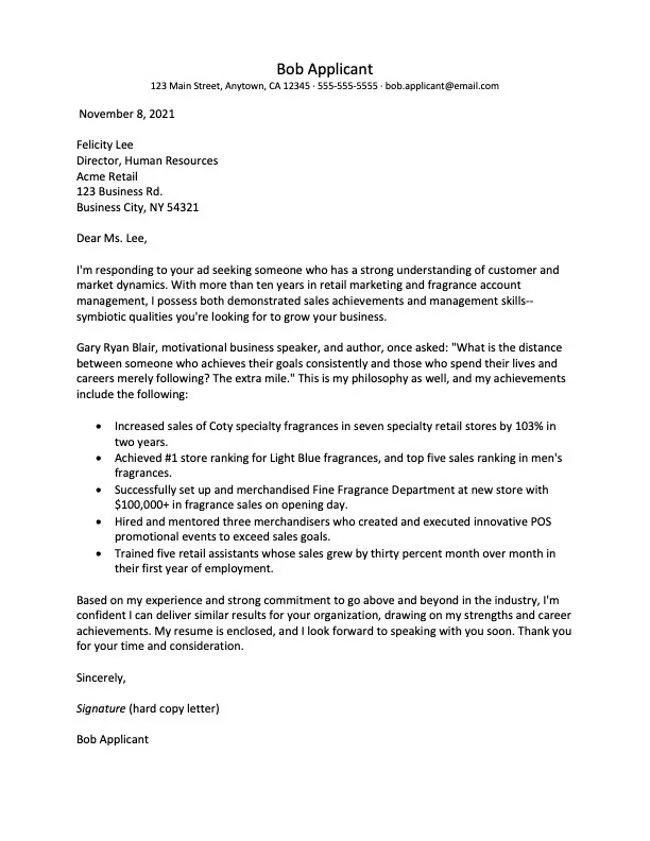
Inventory management is key to retail efficiency. Highlight your experience with inventory control, including stock management, loss prevention, and minimizing discrepancies. Mention specific systems or processes you’ve used, such as inventory tracking software or loss prevention strategies. Provide examples of how you improved inventory accuracy or reduced shrinkage in previous roles. This could be through meticulous record-keeping, stock rotation, or implementing new inventory management software. Demonstrate your ability to maintain efficient stock levels and prevent loss.
Cash Handling and Point of Sale (POS) Systems
Proficiency in cash handling and POS systems is essential. Mention your experience with different POS systems, detailing your familiarity with various aspects. Provide examples of your ability to manage cash transactions accurately and efficiently. Did you balance cash drawers at the end of shifts without discrepancies? Did you handle high-volume transactions with speed and accuracy? Highlight your skills in preventing errors, handling returns, and adhering to cash-handling procedures. These practical skills demonstrate your readiness to step into a retail position and contribute from day one.
Tailoring Your Cover Letter to the Job Description
A generic cover letter is a quick path to the rejection pile. Tailoring your letter to each job description is essential. Carefully read the job posting and identify the key requirements, skills, and values that the employer seeks. Then, customize your letter to directly address these points. Use the same keywords and phrases from the job description. Structure your letter to highlight the relevant skills and experiences. Show the employer that you have taken the time to understand their specific needs and expectations. This level of personalization demonstrates your genuine interest in the role and the company.
Researching the Company Culture
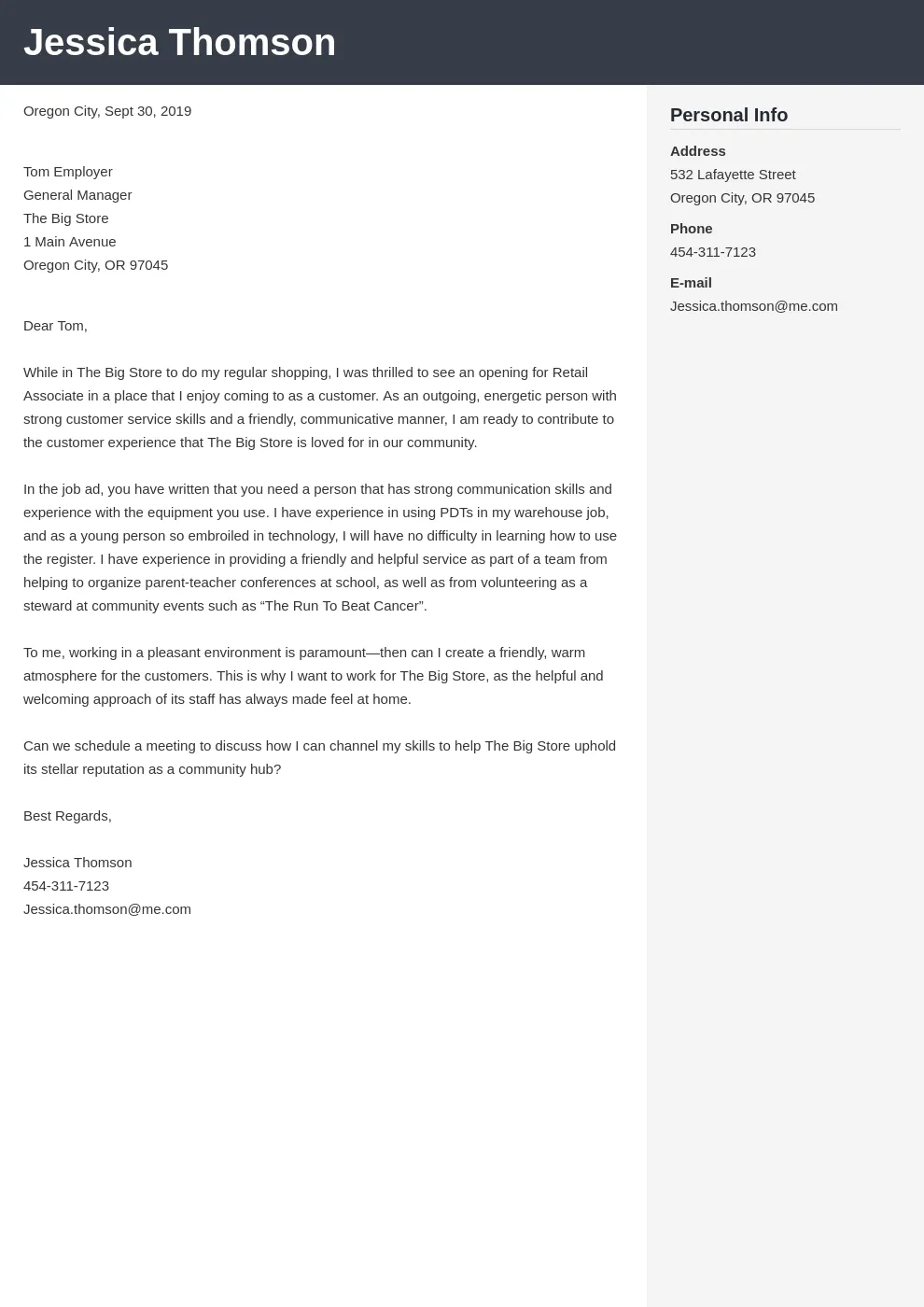
Before writing, research the company’s values, mission, and culture. Understand their brand and target audience. This research allows you to align your cover letter with their ethos and demonstrate your understanding of their business. Look at their website, social media, and any press releases. Use this information to personalize your letter. Demonstrate that you not only possess the required skills, but that you also align with their values. Mention specific company initiatives, products, or values that resonate with you. This shows that you are genuinely interested in the company and not just looking for any retail job.
Using Keywords from the Job Posting
Keywords are crucial for applicant tracking systems (ATS) and human readers alike. Identify the primary keywords and phrases in the job description, such as ‘customer service,’ ‘sales experience,’ ‘inventory management,’ and ‘POS systems.’ Incorporate these keywords naturally into your cover letter. This helps your application pass through ATS filters, ensuring it is seen by a human. When possible, mirror the language of the job posting. If the posting emphasizes ‘customer relationship building,’ use that phrase. Avoid keyword stuffing; instead, integrate keywords seamlessly into your sentences and paragraphs. This targeted approach ensures that your skills and experiences are aligned with the employer’s needs.
Structuring Your Retail Cover Letter
A well-structured cover letter is easy to read and makes a strong impression. Follow a standard format, including contact information, a salutation, an opening paragraph, body paragraphs, and a closing paragraph. Each section should have a clear purpose. The structure guides the reader, highlighting your skills and experiences effectively. Keep the letter concise and to the point, aiming for a single page. Use clear headings and bullet points to break up text. This organizational approach makes it easier for the hiring manager to quickly grasp your qualifications. Maintain a professional tone and use proper grammar and punctuation throughout.
Contact Information and Salutation
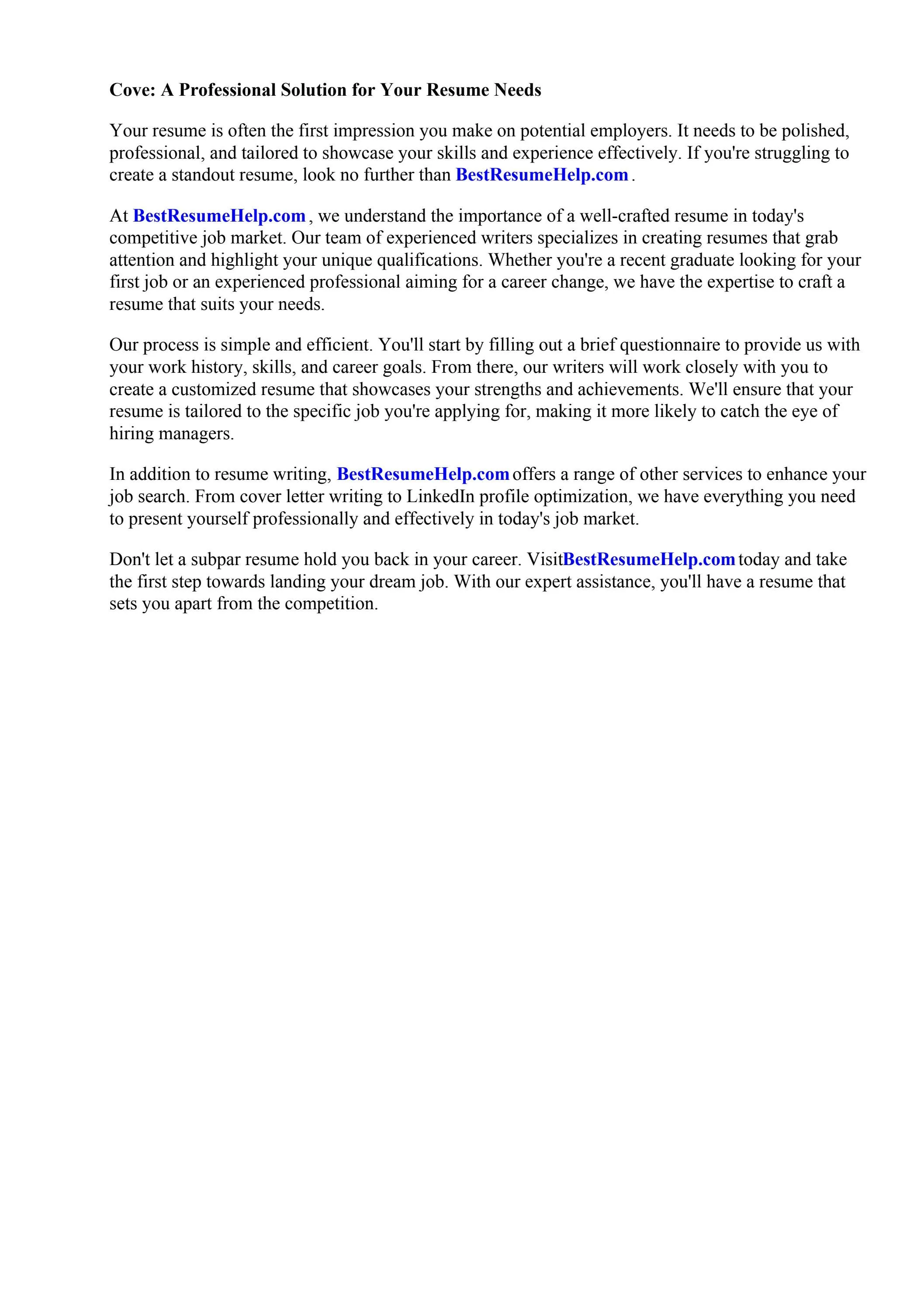
Start with your contact information: your name, address, phone number, and email. This makes it easy for the hiring manager to contact you. Next, include the date and the hiring manager’s name if you know it. If you don’t, use a professional greeting such as ‘Dear Hiring Manager.’ Proper formatting here indicates your professionalism and attention to detail. A well-crafted salutation sets a positive tone for the rest of the letter. Address the hiring manager by name whenever possible, showing that you have researched the company and are genuinely interested in the role.
Opening Paragraph: Grab Their Attention
The opening paragraph is your opportunity to make a strong first impression. Immediately state the position you are applying for and how you learned about it. Briefly introduce yourself and highlight your most relevant qualification or skill. Avoid generic opening lines. Instead, craft a hook that grabs the reader’s attention. Show enthusiasm for the role and the company. This first impression determines whether the hiring manager will continue reading. For example, you could start with an achievement related to the job or state how you are passionate about the brand. This captures the reader’s interest from the outset.
Body Paragraphs: Sell Your Value
The body paragraphs are where you sell your value. Support your claims with specific examples. Highlight your skills, experience, and achievements in relation to the job requirements. Use the STAR method (Situation, Task, Action, Result) to structure your examples. Describe the situation you were in, the task you were assigned, the actions you took, and the results you achieved. Quantify your results whenever possible, such as increasing sales or improving customer satisfaction scores. Focus on the aspects of your experience that are most relevant to the job posting. Make sure your skills and experiences align with what the employer is looking for.
Closing Paragraph: Call to Action
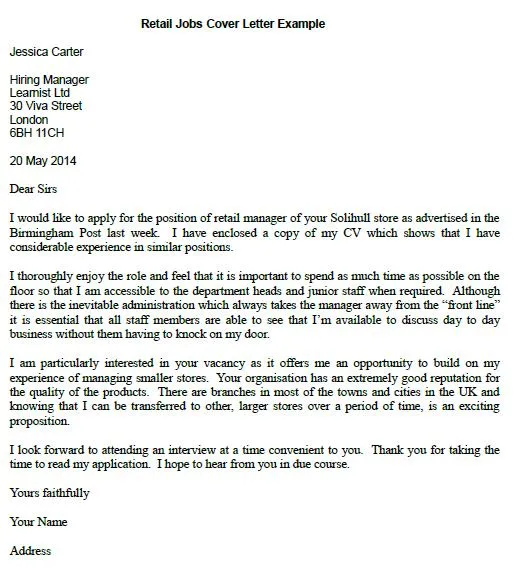
End your cover letter with a strong call to action. Reiterate your interest in the position and express your enthusiasm for the opportunity. Thank the hiring manager for their time and consideration. Include a statement indicating your availability for an interview and your preferred method of contact. Avoid simply repeating information. Instead, summarize your key strengths and reiterate why you are a good fit for the role. Make it clear that you are eager to discuss your qualifications further. A clear call to action encourages the hiring manager to take the next step.
Proofreading and Editing Your Cover Letter
Proofreading and editing are crucial steps in the writing process. Errors in your cover letter can create a negative impression. Read your letter carefully, checking for typos, grammatical errors, and formatting inconsistencies. Use spell-check and grammar-check tools, but also read the letter aloud to catch any awkward phrasing or sentence structure. Get a second pair of eyes to review your letter. Ask a friend or family member to proofread. Fresh eyes can often catch mistakes you might miss. Make sure your cover letter is professional and error-free. These small details show that you are attentive and professional.
Common Mistakes to Avoid in Your Retail Cover Letter
Avoid common pitfalls to ensure your cover letter is effective. Mistakes can undermine your application. Understanding these traps will help you to present yourself in the best possible light. By avoiding these common issues, you can increase the likelihood of being noticed and invited for an interview. Present yourself in the most professional manner, allowing you to highlight your skills and secure a role.
Generic Language and Lack of Enthusiasm
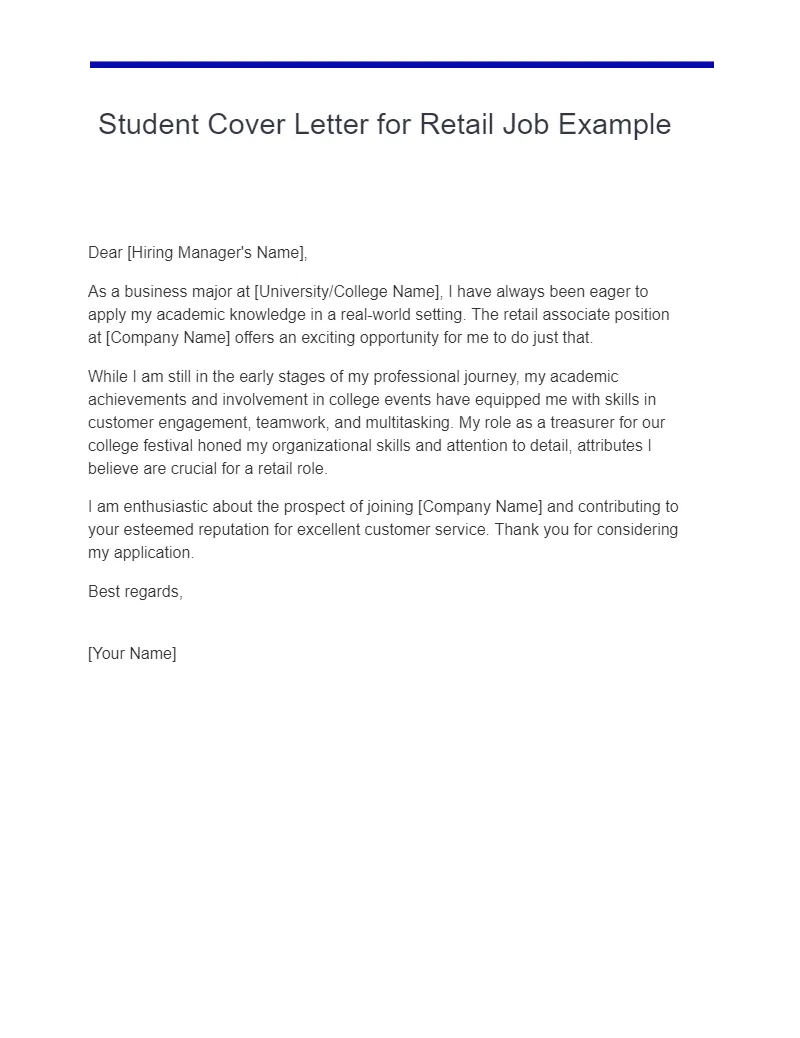
Generic language is a sign of disinterest. Avoid using cliches and generic phrases. The hiring manager wants to understand your unique value. Express your enthusiasm for the role and the company. Instead of saying, ‘I am a team player,’ provide a specific example of your teamwork skills. Tailor your letter to the specific job posting and company. Show that you have done your research. Express genuine interest in the role. Demonstrate your passion for retail and the specific company you are applying to. Let your personality and enthusiasm shine through.
Typos and Grammatical Errors
Typos and grammatical errors make a poor impression. Carefully proofread your letter. Mistakes signal a lack of attention to detail and professionalism. Use spell-check and grammar-check tools. However, don’t rely on these tools alone. Read your letter aloud to catch any errors. Get a friend to review your cover letter. A fresh pair of eyes can often spot mistakes you might miss. Thorough proofreading ensures that your letter is polished and professional. Errors can distract the reader and undermine your credibility.
Not Tailoring Your Letter
Sending a generic cover letter is a major mistake. Always tailor your letter to the specific job posting and company. Address the key requirements mentioned in the job description. Research the company’s values, mission, and culture. Show the hiring manager that you have taken the time to understand their needs and expectations. Include the company’s name, products, or recent achievements. This shows your interest and that you are ready to commit to the company. Avoid sending a generic cover letter that could be used for any retail position.
Formatting and Presentation
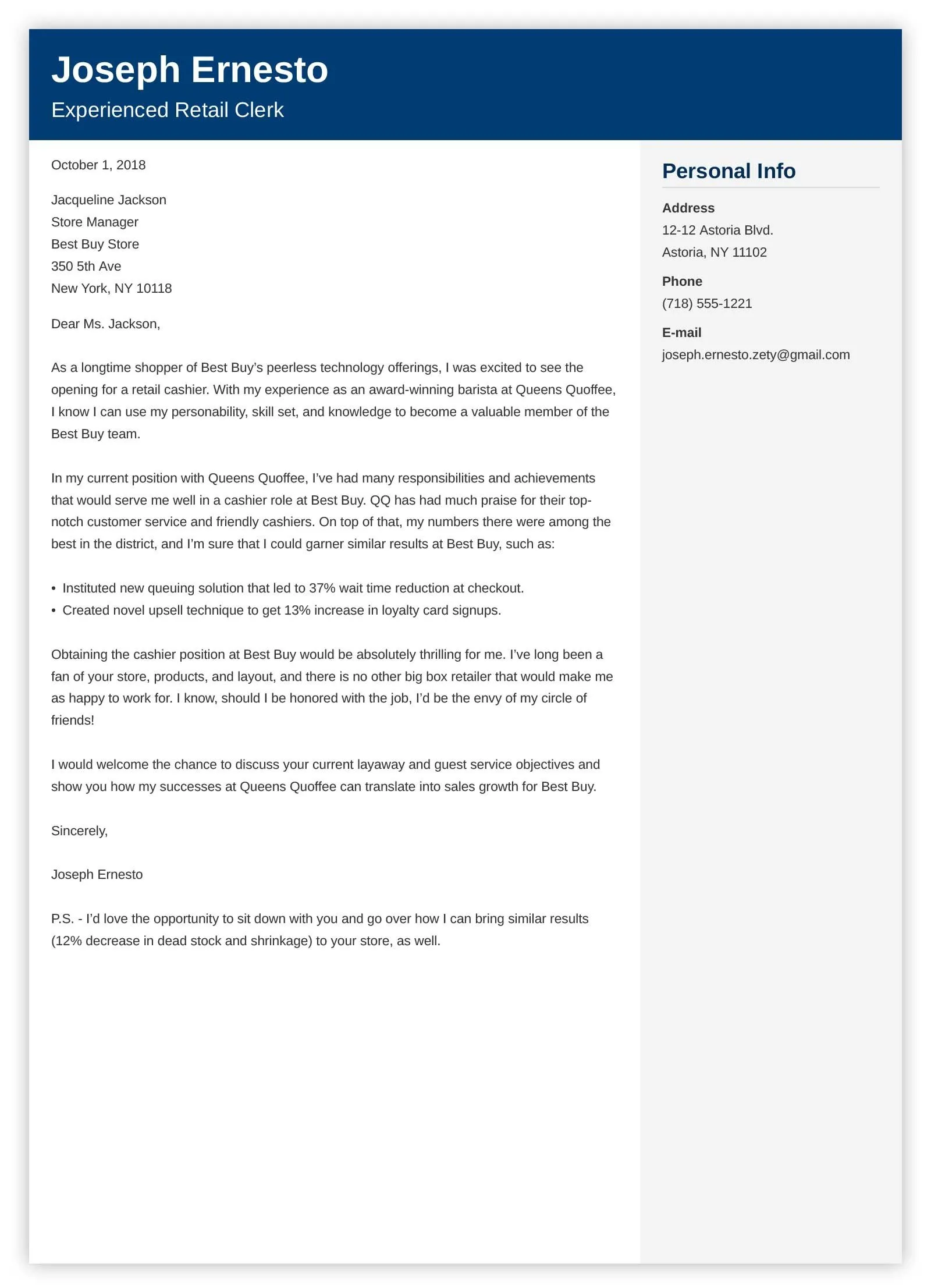
Formatting and presentation matters. Make sure your cover letter is well-organized and easy to read. Use a professional font and appropriate font size. Use clear headings and bullet points to break up text. Keep the letter concise, preferably one page. Maintain a professional tone throughout. Poor formatting can make your letter difficult to read and distract from your qualifications. Ensure your cover letter looks professional and polished. This includes consistent spacing, alignment, and clear headings and subheadings. Choose a professional-looking font like Times New Roman or Arial.
Retail Cover Letter Examples to Inspire You
Reviewing retail cover letter examples can inspire you. These examples provide insight into effective language and structure. Search online for cover letter templates and examples tailored to retail positions. Pay attention to the format, tone, and how the applicants highlight their skills. Use these examples as a guide. Adapt and customize them to your unique experience. By seeing how others have successfully presented themselves, you can refine your own cover letter and increase your chances of landing an interview. Note the style of the most successful examples and use that in your letter.
